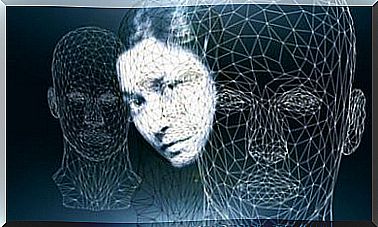When Was The Last Time You Played Sick?

Almost everyone has played sick at some time to gain some advantage or avoid something unpleasant. For example, some children claim that their stomach hurts to avoid going to school. Interestingly, these behaviors are still present in adults.
You probably also have your own stories of ever pretending to be sick to avoid something unpleasant, whether it be at work, school, family, or some commitment you didn’t want to attend. This condition, called simulation. Although it is not considered a disorder or a psychiatric illness, it is described in the diagnostic and statistical manual of mental disorders… Let’s see why.
He who pretends to be sick pretends to make a profit
Simulators produce symptoms, whether physical or psychological, consciously and intentionally. Why? To avoid unpleasant situations, such as work or legal obligations, military service, or jail. But the simulation can also occur when certain benefits are sought, such as receiving financial compensation for the alleged illness or to obtain drugs.

However, simulation should not be confused with another similar condition, called factitious disorder, where symptoms of a disease also occur on purpose. However, motivation is not an external incentive, but rather pretending to be ill arises from a psychological need, such as obtaining attention or affection.
Additionally, the simulation can be adaptive in some cases, such as the prisoner of war faking an illness as part of a plan to escape the enemy.
How to discover the one who falsely pretends to be sick?
There are certain data that serve as clues to know if you are in front of a simulator. Here are some suspicious signs of simulation:
- There is a possibility that due to the alleged illness, the person:
- Avoid unpleasant, dangerous or painful situations
- Avoid social or legal responsibilities as well as legal penalties
- Get financial compensation
- The symptoms are well defined and do not correspond to any diagnostic picture
- Signs or symptoms are exaggerated, theatrical, or vague
- Medical history and physical examination are inconsistent with suspected symptoms
- There is an evident lack of collaboration with the treatment or does not accept the absence of a diagnosis
- The supposed patient is reluctant to accept a favorable prognosis
- The person requests drugs or drugs to treat the alleged illness
- Existence of injuries that appear to be self-inflicted
- Alteration of medical history or diagnosis
- In laboratory tests, drugs that have not been prescribed, or toxic substances are detected
- There is a history of repeated injuries or accidents
- Symptoms coexist with a diagnosis of antisocial personality disorder
Diagnosis and treatment

Experts agree that diagnosing the simulation is not an easy task, but they are also very careful to rule out that there really is no medical or psychiatric cause that explains the symptoms.
Thus, to make an adequate diagnosis in these cases, it is necessary to do a detective work, which goes through a careful and exhaustive investigation of various data sources to make a cross-validation. For example, examine laboratory tests, physical exams. Do structured interviews, explore the medical history, the current situation in the personal, work and social areas, neurophysiological tests, etc. Also, a specific test can be used to detect the simulation.
Although it sounds strange to treat a non-existent disorder, the recommended strategy is to provide the necessary psychological support to the person to develop new forms and skills, which allow them to face certain demands or circumstances of life.
In summary, although it is true that simulation is not considered a pathology, there is a fine line between sporadic simulation -which does not carry major consequences- and simulation as a dysfunctional behavior pattern that negatively affects not only the person himself, but also to others.









